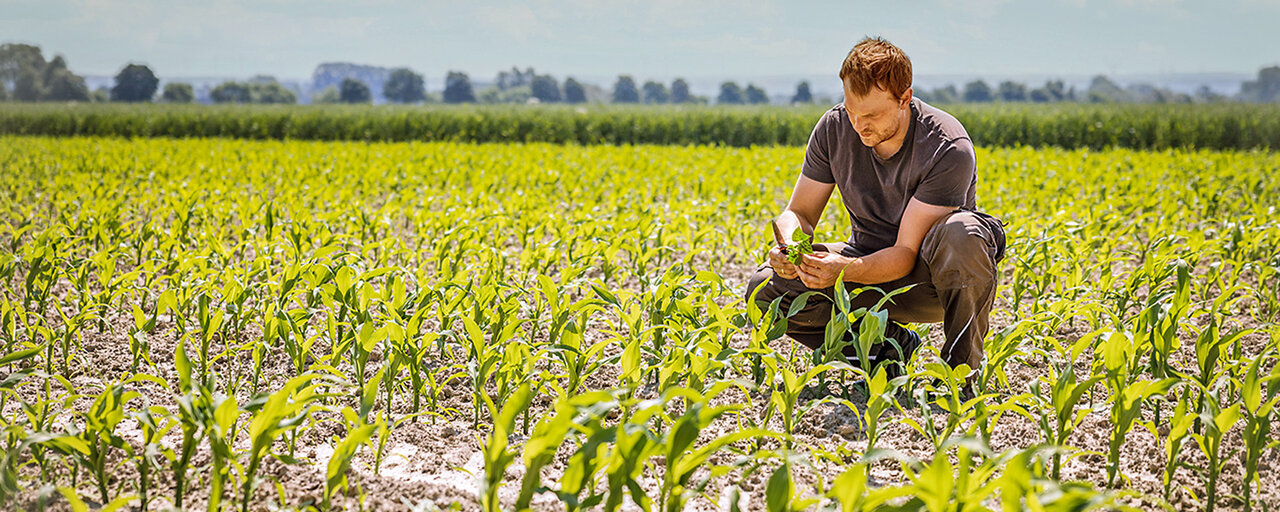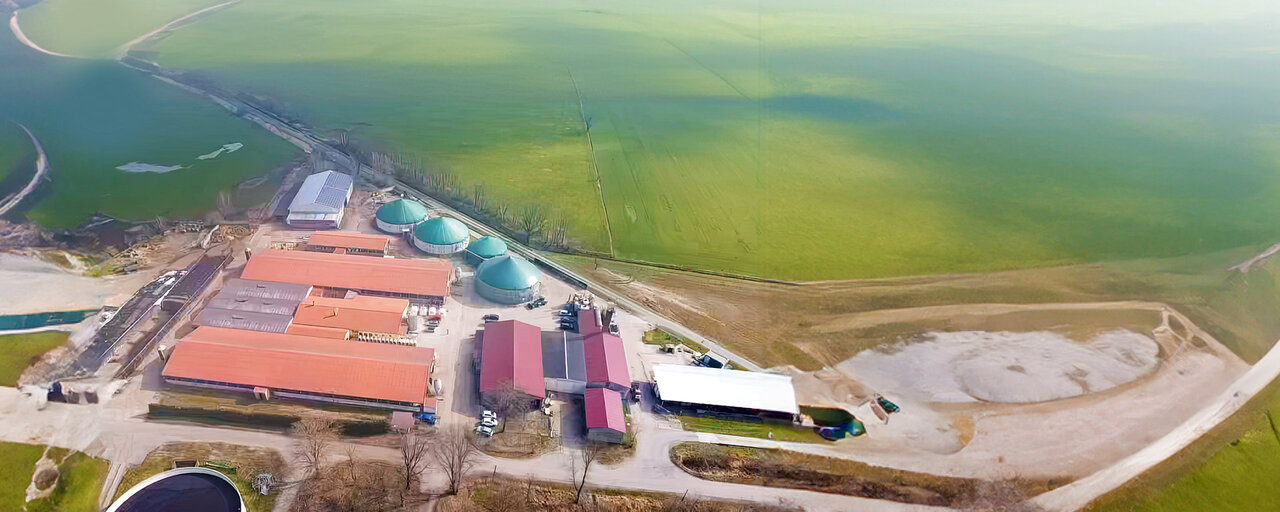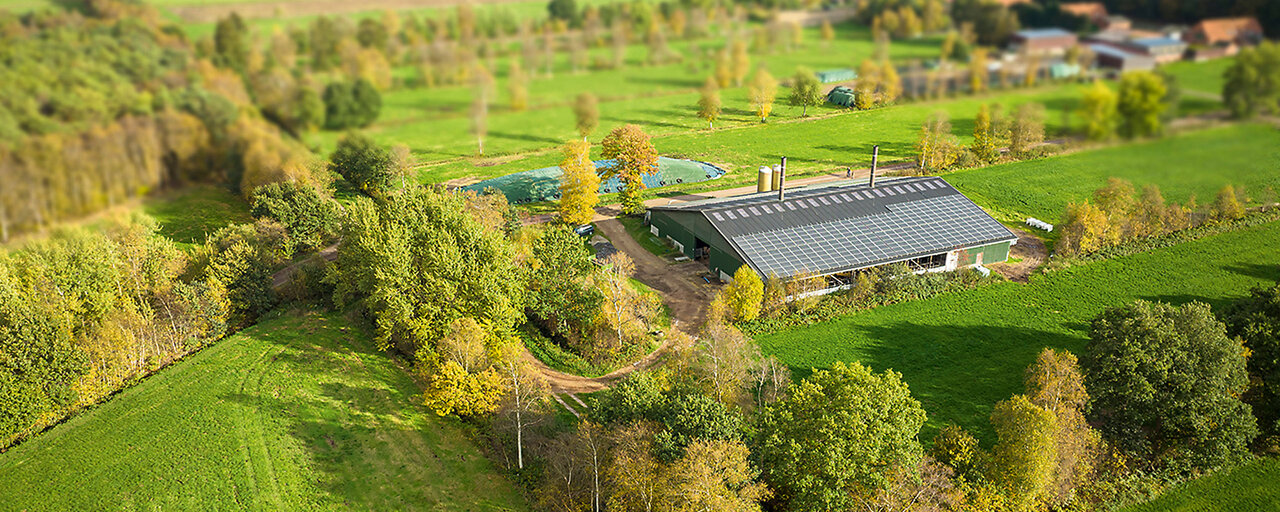![[Translate to English:]](https://dmk.de/fileadmin/_processed_/e/7/csm_DMK_28A5636_a79dca5774.jpg)
We can feel the effects of climate change everywhere – it’s time to change the way we think and act. Because farming plays an important role in combating climate change, we too have to face up to the challenge of innovative concepts and solutions. Milk production accounts for 73 per cent of the DMK Group's total carbon footprint - the potential for action here is correspondingly high.
In addition to the Agricultural Climate Check with which our farmers can draw up their individual climate assessment and identify improvement potentials, the DMK Group aims to reinforce climate protection on dairy farms with “DMK Net Zero Farms”.
“DMK Net Zero Farms” are testing a variety of climate measures at agricultural holdings to reduce the CO2 footprint by the end of 2025 and bring it towards net zero. The focus in reducing CO2 emissions is on farm management, arable farming and fodder crops and the farms’ energy generation.
By the way, Germany’s grassland, including meadows and pastures, accounts for around 30% of the agricultural area and acts as important CO2 storage. With around 2.4 billion tonnes of carbon, this land actually exceeds the carbon content of Germany’s entire forest area twofold.
In the context of DMK Net Zero Farms, opportunities are tested for using feed additives to reduce methane, optimising feed rations, cultivating native protein crops or adapting liquid manure management. All the measures tested are observed with regard to the impact on milk yield, animal health and practicality. The insights gained are being translated into sustainable concepts that can be applied to all farms even during the implementation of the project.

A propos methane: ruminants such as cows are more efficient and environmentally friendly than is often assumed. Although their methane emissions are unavoidable, they depend on feed efficiency. Cows transform grass and crop residues into milk and in doing so contribute to food production, whereby their CO2 footprint is small compared to the protein they deliver. In Germany, the methane emissions from farming with livestock account for only 3.2% of greenhouse gas emissions, and methane breaks down quickly in the atmosphere. Dairy cows play a crucial role in the cultivated landscape, biodiversity and the sustainable preservation of resources, and milk holds a key position in the food cycle of the future.
As the climate challenges are enormous and can only be solved together, we have sought out renowned partners and set up the ‘Climate Think Tank’ to provide project advice and support. This brings together experienced experts from science and practice as well as customers. Our pilot project “DMK Net Zero Farms” thus receives expert support from top institutes such as the Thünen Institute of Farm Economics, the Leibniz institute for Agricultural Engineering and Bioeconomy, the KWS plant breeding centre, FarmCHAMPS, the partner for the digitalisation of milk production, Josera, the animal nutrition specialist, AGRAVIS, the agricultural trade company, management consultancy Gottwald & Klepsch and our long-standing DMK customer Mars Wrigley.
DMK wants to continue to fulfil its responsibility with pioneering projects such as this one and use the findings from the pilot farms to make a significant contribution to reducing emissions and to the sustainability of the industry.




![[Translate to English:] [Translate to English:]](https://dmk.de/fileadmin/_processed_/d/2/csm_K%C3%BChe_auf_der_Weide_7e4f85b32c.jpg)
